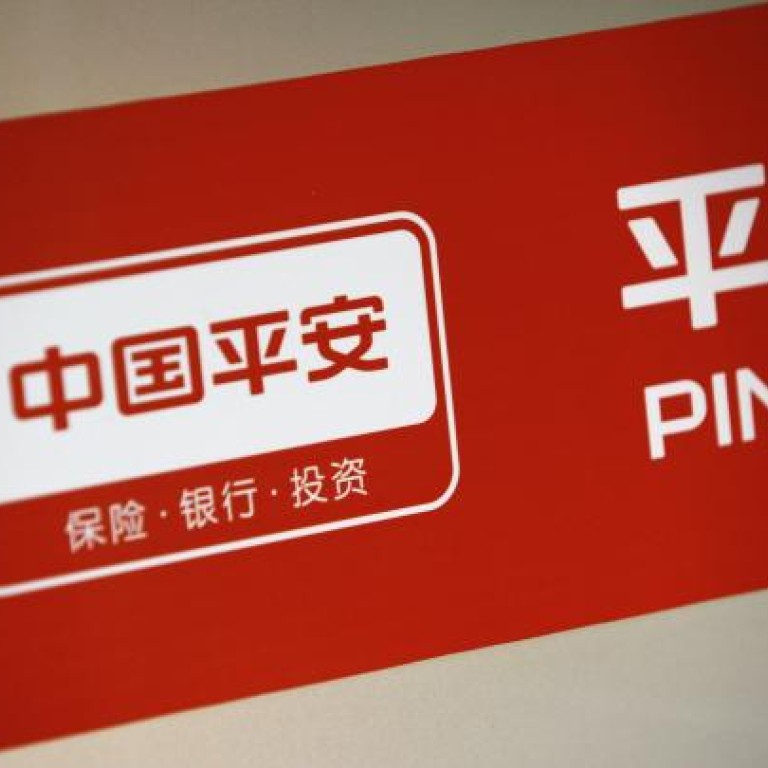
HSBC and Ping An stand to lose if CP deal flops
The possible collapse of a high-profile deal for HSBC to exit from Ping An Insurance would be a lose-lose culmination to a decade-long relationship between Europe's biggest bank by assets and the mainland's No 2 life insurer.

The people said the CIRC was concerned about where the money was coming from for the deal and who the real buyer was.
The planned transaction comes at a time when HSBC is being forced to pay US$1.92 billion to settle a US probe into money laundering.
It is also a politically sensitive time for Ping An. reported in November that relatives of outgoing premier Wen Jiabao and their friends had reaped handsome gains from their investments in the insurer.
If the deal collapsed, it would mean immense loss of face for HSBC.
The bank, which was established in Hong Kong and Shanghai in 1865 and later moved its headquarters to London and broadened its global reach, has long maintained one of the best relationships with the mainland government of any foreign bank.
"Moneywise, it will definitely be a huge disappointment for HSBC. We're talking about nearly US$10 billion here," said a fund manager in Hong Kong, who declined to be named as he was not authorised to speak to the media.
"You know how bad the world's economic and market environment is these days, so who else would dare to take such a big block trade if the first one who tried was turned down by Beijing?"
Early last month, when HSBC announced the deal, it said the transaction would allow it to book a net gain of about US$2.6 billion once it was completed.
Banking industry analysts estimate that the deal could boost HSBC's capital base by half a percentage point, a tepid gain. From that point of view, most analysts say HSBC's failure to sell its Ping An stake to CP would have limited impact on the bank's financial position.
"It would have more sentimental impact, as some investors might ask why HSBC failed to sell the stake. If they looked deeper, they might even ask why HSBC hadn't done better homework to check out who the real buyer was and why Beijing didn't like the guy," said an analyst at a European investment bank, referring to mainland businessman Xiao Jianhua, who emerged as a behind-the-scenes buyer for the Ping An stake.
Xiao's role in the deal, which caught the attention of the press and the markets in recent weeks, caused China Development Bank, which initially agreed to support CP's bid, and the insurance regulator to change their attitudes, thanks mainly to Xiao's reputation and track record in the mainland capital markets.
Xiao's detractors argue that his mercurial rise owes much to his uncanny ability to use other people's money to leverage loans from banks for big deals and quickly cash out when they are done.
"Because of this deal, HSBC's image is now somehow linked to Xiao, and people will remember that, and some may ask how this could happen," the analyst at the European firm said.
For Ping An, which was eager to find a new owner for HSBC's stake - the insurer issued at least two statements to welcome CP as a shareholder even before the deal went to Beijing for approval - the failure of the transaction could have a chilling effect on its relationship with the bank.
Analysts have said HSBC was not much involved in Ping An's day-to-day management or long-term strategic plans. In recent years, the bank's role was more that of a passive investor.
The timing and nature of HSBC's exit from Ping An has been described by many analysts as one of the uncertainties that the insurer faces, and such uncertainties will continue if the regulator rejects CP's bid, possibly putting Ping An's share price under pressure.
An analyst at a mainland brokerage forecast that HSBC's total income from Ping An, including cash dividends, could amount to US$1 billion a year.
Holding its stake in Ping An for the time being, rather than rushing to find a new buyer, would be a realistic option for the bank if it failed to sell the stake to CP, he said.


